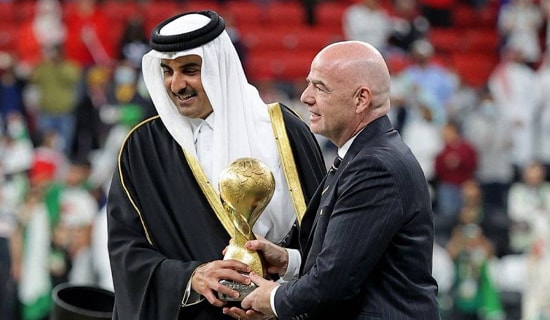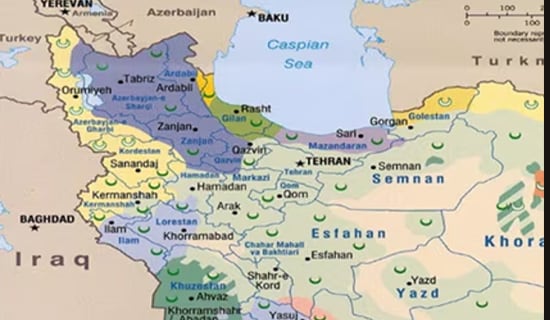For many Russian commentators, the visit of Chinese President Xi Jinping to Moscow last week and the growing ties between China and Russia are a reflection of the two countries' shared predicament as victims of Western attempts to curb their growth and power.[1] For Russian political scientist Sergey Karaganov, the dean of the Faculty of World Economy and International Affairs at Moscow's Higher School of Economics, and presidential advisor to both Boris Yeltsin and Vladimir Putin, Xi's visit, and the flurry of agreements signed between the two countries, represent a vindication of his Eurasian approach. In his view, even without Western hostility, Russia would have been drawn to the East. To him, Europe is a spent force that will soon be a colossal Venice — a place where one can dine well and admire the architecture, but which has declined as a center of trade and technology. In an interview with Vitaly Tseplayev, Karaganov elaborated on his vision, which includes the massive development of Siberia and the Russia's Far East and the transformation of Vladivostok, on Russia's pacific coast, into the country's commercial capital.
Karaganov's interview follows below:[2]

Sergey Karaganov (Source: Aif.ru)
China Needs A Strong Russia To Back Its Struggle Against The Collective West
"Vitaly Tseplyaev, of aif.ru: Sergey Alexandrovich, to sum up Xi Jinping's visit, what is the takeaway?
"Sergey Karaganov: The takeaway is a huge number of agreements in various fields, 80 investment projects worth $165 billion. We are entering a completely different level of economic interaction. I would call it a course towards economic integration — the creation of joint ventures, entire production chains, the transition to trade in national currencies, etc. Plus, enhanced cooperation in the military-political field. There is no formal union, but in fact Russia and China are in a coalition. It is clear that we do not know the entire substance of the negotiations, the details were left behind the scenes. But we see that Chinese leadership has taken a firm decision to support Russia in the common struggle for modifying the world order. One battle in this struggle is currently taking place in Ukraine.
"Q: You once said that the Chinese would help Russia, but first of all, 'they are concerned with their own interests, not ours.' Is it their self-interest to strengthen Russia, or is it more convenient for them to do business with a weakened one?
"A: They need a strong rear in their confrontation with the collective West. A weak Russia, a Russia that can unravel, cannot serve them [China] as a full-fledged resource for their own development and security.
"Q: What should be done in order not to fall into excessive dependence on the East in the same way as before on the West? And to avoid disappointment after another allure.
"A: You don't need to be idiots for this, as was the majority of our elite in the 1980s and 1990s, when they decided that the West would accept us with open arms. Economic ties and military policy must be built, guided by our own interests and preserving the highest possible level of sovereignty under the given conditions. Eurocentrism has led us to a dead end. We should be grateful to Europe because we absorbed many of its useful ideas and practices over the past three centuries. But today Europe is in decline. And Asia, which we (following the theories of the colonial powers, who sought to justify and validate their policies of suppression and robbery) considered backward, is in fact not that way. Yes, and in the old days, she could give odds to the West. Let's remember how many great discoveries and inventions were made in China, the Arab world, Persia and India - starting with gunpowder, cannons and paper.
"Q: What should Russia go to the East with? What can it offer its Asian partners besides oil, gas, coal and other raw materials?
"A: To begin with, let's not follow some fools who say with disdain that the supply of raw materials is bad. If it is profitable to trade hydrocarbons, metals, electricity, and grain, then one should trade in them. It is important to use our God-given competitive advantages, earned by the pioneers and protected by the warriors. They once imposed an economic theory upon us, according to which the iPhone is for some reason considered a more valuable commodity than wheat or meat. Nonsense! In the East and south, huge markets extend before us — energy, food. We forget that the same Chinese or Koreans import a monstrous amount of food from the USA. But we could grow it for them. Nothing prevents us from supplying them with not only wheat or soy beans, but also meat, dairy products...
"So, you can look at the situation from a different angle: It is not Russia that will be Asia's raw materials appendage, but Asia will be Russia's production appendage. Much like Europe was. Most importantly, we must stay strong. From Asia, we will get [things] for much cheaper than the West; machines and equipment, telephones, refrigerators, etc. (although some of the key defense products and technologies we will have to produce ourselves).
"Q: Cheap, but still not as good quality.
"A: Not true. The same Korean cars, which 15 years ago were considered a knock off of English ones, are much better than them today. And in 3-5 years, Chinese cars will be better than German or French ones, I assure you.
Europe Will Slowly Turn Into One Big Venice — A Tourist Center Where One Can Eat Well And Admire The Beautiful Architecture — But It Will No Longer Set The Tone In Global Political, Economic, And Spiritual Life
"Q: Even in terms of population – nearly 450 million people — the market of the EU countries looks more attractive to China than the Russian one, not to mention the fact that this population is more solvent. Will Beijing sacrifice big for small?
"A: The Chinese understand that they will no longer have good relations with the West. Of course, they are not going to break economic ties with them on their own initiative, just as we were not going to do this prior to the sanctions. Additionally, China is much more dependent on Western markets than we are. But in the last 10 years they have been reorienting themselves towards the domestic market, cooperation with other Asian countries and their closest neighbors, primarily with Russia. This is a long but inevitable process. Moreover, the European market today is moving down a rather steep incline. Europe's purchasing power will be reduced, it will be of ever-decreasing interest to Asia as a source of technology as well. It will slowly turn into one big Venice. A tourist center where you can eat well, admire the beautiful architecture, take a walk — to paraphrase Dostoevsky's famous expression — along the 'sacred stones of Europe'. But it will no longer set the tone in global political, economic, and spiritual life. I hope it doesn't slide back into ultra-nationalism, into other disgusting 'isms' that it spawned.
"Q: Trade expansion, I suspect, is not the only direction of the pivot to the East?
"A: Of course not. The most important thing we must do is to change the direction of our country's internal development. It is necessary to raise the eastern regions, and first of all, not only Russia's Far East, but also Central Siberia. New industries should be developed there, new centers of attraction for everything — people, technologies, sciences, arts... Some management structures can also be transferred there. Tomsk and Novosibirsk together could become the scientific capital of Russia, Krasnoyarsk and Irkutsk — the industrial capital, and Vladivostok — the commercial capital. You need to change your thinking and education. You need to know, en masse, the oriental languages and culture, their brilliant history in Asia.
"Q: Do you propose relocating the country's capital closer to China?
"A: No. Moscow should remain the political capital of Russia, and St. Petersburg the cultural one. This is our history, our symbols. But, of course, we have reserve administrative centers in case we have war – beyond the Urals of course. As a matter of fact, the Novosibirsk Academgorodok was also built so that in case of war and the seizure of European territory by the enemy, we would have an alternative center of science and nuclear technologies.
India Is Already Becoming One Of The largest Buyers Of Russian Oil, And Will Be The Most Important Buyer Of Gas
"Q: Recently you called the pivot to the East a 'non-pivot' — they say much is being done incorrectly and exceedingly slowly. What do they mean?
"A: Firstly, for some reason, Western and Eastern Siberia dropped out of the plans for developing our territories beyond the Urals in recent years, this is a mistake. Secondly, we are very tardy — 10-15 years — in our reorientation to eastern markets, which began flourishing in the early 2000s, if not earlier. In recent years, we have built only one gas pipeline, the Power of Siberia, and have been moving very slowly towards the implementation of the Power of Siberia-2 project. Which, by the way, should connect the fields of Yamal and Western Siberia with the Asian markets and ensure the transfer of resources from west to east. Another part of the resources will go to the south — to Turkey, and in the future to Iran and India. India is already becoming one of the largest buyers of Russian oil, and will be the most important buyer of gas.
"Alas, the turn to the East, even in the face of a tough confrontation with the West, did not become a super-idea for either our elites or for the population at large. We are not seeing anything like the late imperial slogan, "Forward to the Great Ocean", which inspired the builders of the Trans-Siberian Railway, or the Soviet development of the Arctic, which the whole country followed with bated breath. Even amongst the inhabitants of the eastern regions, the idea of turning [eastward] did not burn strongly, although it potentially brings them great benefits. It is perceived, rather, as a 'Moscow notion'... An illustrative example: only last year we opened two new bridges across the Amur River. But the agreement on construction was signed almost 30 years ago! Today it seems ridiculous, but under the USSR, bridges were not built, for fear that Chinese tanks would use them to attack us.

Bridge connecting Russia and China across the Amur River (Source: Ria.ru)
"Q: Today, one shouldn't fear Chinese tanks?
"A: Of course not. And China proves this by drastically reducing the number of its troops in the north, in the provinces bordering Russia, and moving to a naval defense strategy — in fact, against the United States and its allies. But in order to avoid fear in the future, we need to achieve a new upsurge in Siberia over the next 20 years, and through [this upsurge], all of Russia. This task must be solved in parallel with ensuring security on the western flank. But you need to understand that the West, for the next two decades, is an unpromising direction of development.
Apricots In Siberia
"Q: Throwing all your energy into the development of Siberia, building the future of Russia around it is an attractive idea in itself, although not a new one. But skeptics will probably object to you: they would say, Siberia is just a pantry of natural resources. And the owner of the house comes into the pantry only to take something from there — no one is going to move the bed or the TV there, or make it the center of domestic life. Is it justified to spend colossal funds to develop this very large, climatically complex territory?
"A: We have been arguing on this subject for more than one hundred years. And there were really senseless, lame, exorbitantly expensive projects for the 'development' of Siberia. Like the turn of the Siberian rivers or the Transpolar Highway (projects 501, 503) — the railway beyond the Arctic Circle. There, you can still see the rotting remains of locomotives and camps for prisoners who were supposed to build this road. But if that project was stillborn from the outset, then one can only be surprised by the struggle against the construction of the Trans-Siberian Railway. But this struggle was waged even by some Siberian elites, who in this way wanted to preserve their 'independence'. But without the Trans-Siberian Railway, Russia would not have Siberia today, and Siberians would probably live under Chinese or Japanese rule. You just need to be able to look at the years ahead and distinguish the projects that are necessary from those that are superfluous.

The Trans-Siberian Railway (Source: Primin.ru)
"Q: Who is going to build ports, roads and cities beyond the Urals if depopulation continues there? The population of the entire Russian Far East today is eight million people. Three times as many people live in Shanghai alone...
"A: Are you suggesting that I reduce the population of Shanghai?
"Q: No, but suddenly you know how to make sure that the population of Siberia and the Far East does not decrease, but rather grows?
"A: In fact, big cities are already growing there. Look at Irkutsk, Novosibirsk, Khabarovsk... The recipe is really simple — you need to create conditions for a better life. And the climate conditions there are already not so terrible. For example, even apricots grow in the Minusinsk Basin. But only a few tens of thousands of people live there, and it could be a million and a half. And with the climate changes that we are now witnessing, in twenty years the south of Siberia will be an extremely favorable place to live and in demand — no less than the Stavropol Territory. Provided that we pursue a policy that will attract people there. Including refugees from Ukraine. I still wonder why we don't have a program to resettle them in relatively comfortable regions beyond the Urals.
"Q: Since we remembered Ukraine, I can't help but ask in the end — in your opinion, are there any chances for the implementation of the Chinese peace plan?
"A: The conversations of the leaders in Moscow were behind closed doors, and we cannot know what they agreed on in this area. Obviously, China wants to strengthen its position as a peacemaker. It just made a spectacular breakthrough by reconciling the Iranians and the Saudis. We also tried to do this once, but the Chinese succeeded. This is a gigantic achievement — overcoming the centuries-old hostility between Sunnis and Shi'ites, fueled in recent decades from outside. Using its economic capabilities, Beijing managed to persuade the leaders of the opposing countries to begin rapprochement. And it is good that it [China] is playing an ever-increasing role in making our world more peaceful.
"If we talk about the essence of China's proposals on the Ukrainian crisis, then we can say that it stands for 'everything good.' But from my point of view, it will only be possible to seriously negotiate after the defeat of the Ukrainian regime and achieving the goals of the Special Operation, and when the Western will for aggression against Russia is totally broken. In fact, China is also interested in this. Another thing is that [Xi] wants to soften some of the friction to avoid incurring additional losses on the way to [China's] inevitable transformation into the number one power."
[1] See MEMRI Special Dispatch No. 10538, Xi's Visit Heartens Russia, But Questions Remain, March 24, 2023.
[2] Aif.ru, March 26, 2023.








